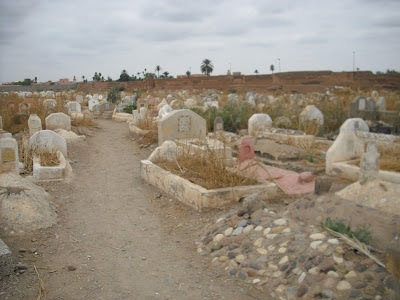We were going to hold our counsel on the
latest wave of violence by Muslims that has been sweeping across the Middle
East and beyond, but not now.
There are a number of observations we feel we
must make. Our guiding principles on what we’re going to write about here come
from two previous articles – ‘Survival of the Dumbest’ and ‘Strength in Belief’.
First of all, it must be stated that the United
States-produced Muhammad ‘movie’ trailer (whether there is an actual
full-length movie remains a doubt) that is being used as the catalyst for this
fierce uproar in the Islamic world is an absolute joke – and that’s not in a
funny way, it’s just complete rubbish.
If you’ve seen it – as most of you
probably have by now – you’ll know what we mean (heck, it even makes some of the
Colombian telenovelas we’ve had the privilege to appear in seem like
quality productions).
So, while it obviously has infuriated the majority of
Muslims, the fact that it is of such low quality, made by dimwits, would make
you think that most reasonable people should be able to let it slide. It doesn’t
even deserve comment. But for many followers of Muhammad it was all they needed
to go on – in Libya and Pakistan, at least – a murderous rampage against the
USA.
From the outside looking in, it really appears that Muslims are just
waiting for any slight excuse to take to the streets in angry, violent protests
against the West.
For these latest demonstrations are not
cases of fighting fire with fire.
Yes, the movie trailer is offensive – and
you can also now throw in here the naked picture of Prophet Muhammad published
in recent days by a French magazine – but no physical damage was caused and
certainly no Muslims lost their lives because of it.
The best thing that could
have been done was to ignore it completely, to rise above such idiocy. Or at
most make a film counter-attacking all that they see as daft and deplorable in
the United States – it’s not like they wouldn’t have much ammunition in this
regard.
But no, a significant number of Muslims,
seemingly drunk on their faith, think that rioting is the only response to such
things. It certainly doesn’t paint a very good picture for the religion as one
of ‘promoting peace’.
Yes, there are fundamentalists in all religious sects,
but there seems to be a proliferation of them in the Islamic world compared to elsewhere.
By definition, it is next to impossible to reason with such fundamentalists –
be they Muslim, Christian, Hindu or whatever.
Indeed, from our experiences,
those closer to being peaceful beings are found more so in the
agnostic/atheist camp than in organised religions.
You can usually discuss
different opinions and outlooks with such people without raising their ire. Their understanding tends to be more universal.
In terms of Islamic states, there are
clear practices and laws in existence that in any enlightened society cannot be
condoned – the freedom to express incompatible views without fear of death
and the treatment of women to name two of the most obvious.
Contrast this with the
relative freedom Muslims are granted to practice their beliefs and customs in the Western world and you see apparent double standards. A little bit more reciprocity
from the Islamic world wouldn’t go astray here.
Of course, there are certain aspects of
Muslim society that we generally like. There is a no nonsense approach to those
found guilty of crimes. Find yourself on the wrong side of the law in an
Islamic country and you’ll certainly know about it.
It’s something that many
Christian-based or secular societies could learn from – stronger, more
meaningful deterrents rather than the softly-softly approach.
In this regard, we refer to what might be considered as more ‘universal’ crimes – needless to
say there are a number of things considered offences in the Muslim world that in
other societies are certainly not.
We must also state that the brief time
we spent in the past in countries that are predominantly Muslim was highly
enjoyable.
Friendly people where you don’t get a feeling that all they see you
as is a talking cash machine there to be used and abused; something you can’t always say about the more Christian Latin America.
However, as mentioned above, the radical
streak when it comes to defending their religion only serves to deepen the
chasm and suspicion that exists between themselves and the Christian/secular
West.
We’ve firmly nailed our colours to the mast previously here on what we think
about organised religion – no matter what sect it is. Take away any form of
reason or perspective and you get events like we’ve been witnessing in the last
week across the Islamic world.
You have to wonder what does God, along with his prophets Jesus and Muhammad, make of it all?
You have to wonder what does God, along with his prophets Jesus and Muhammad, make of it all?








